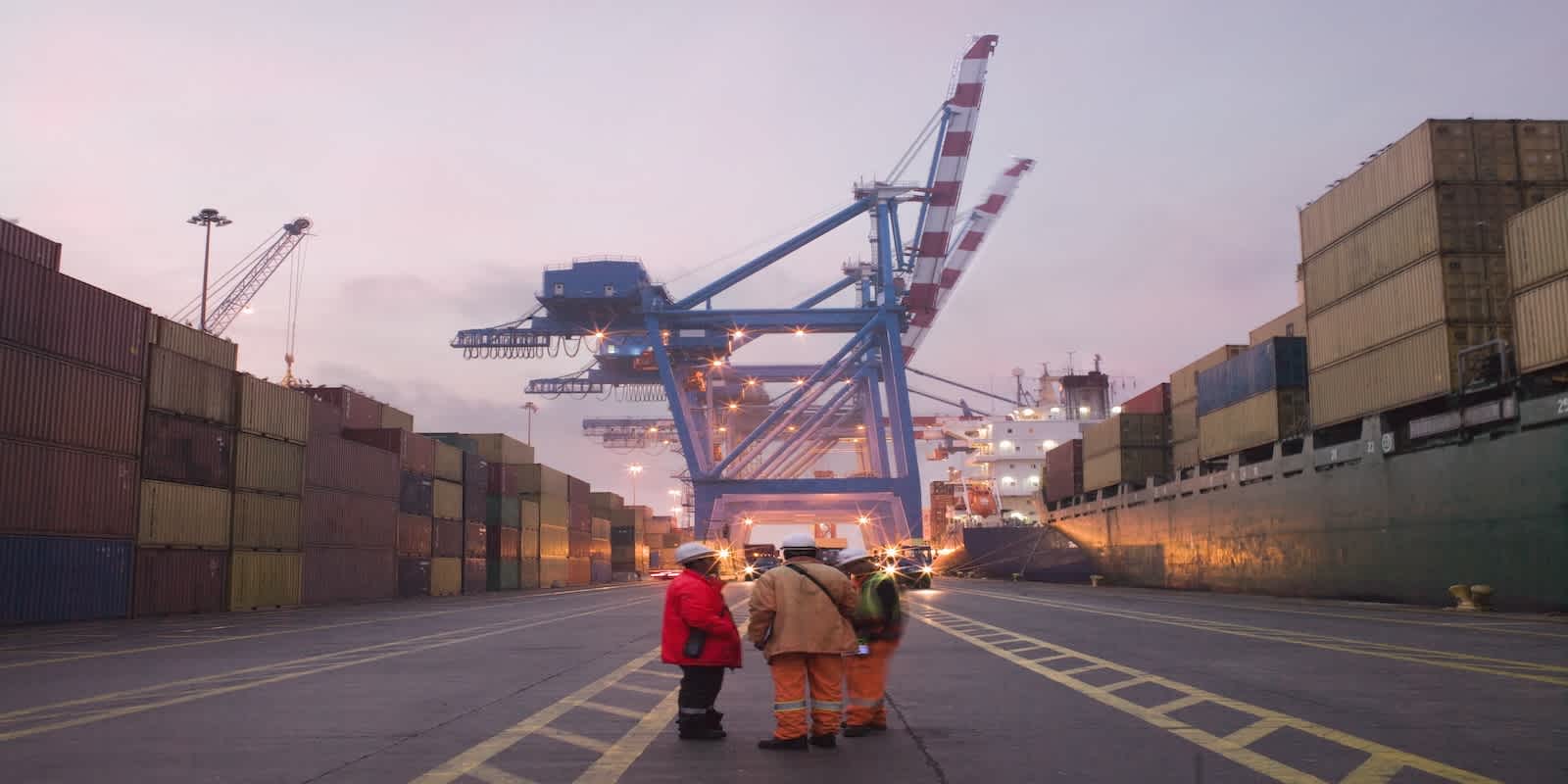
March 8, 2022
What Is Logistical Efficiency and Why Is It Important?
This blog post was originally published by Deliverr, which is now Flexport. The content has been adjusted to fit the Flexport brand voice and tone, but all other information remains unchanged. With the merging of Deliverr’s services (DTC fulfillment, B2B distribution, and Last Mile delivery) into Flexport’s existing international freight and technology services, we’re now able to provide merchants with true end-to-end logistics solutions spanning from the factory floor to the customer’s door.
Logistical efficiency refers to how effectively your business conducts its operations. For ecommerce retailers, this includes the movement of physical merchandise, warehouse processes, shipping, and customer communications. Not only must operations run quickly, but they must also be accurate. Let’s look at some solutions that your business can employ to help its operations run more efficiently.
Optimizing Information Management Systems
Businesses create, receive, and rely on an abundance of information to operate smoothly. From supply chain oversight to warehouse inbounds, order fulfillment, and returns, there’s a need to easily access reliable information in real time and ensure it’s available across a network of teams.
Inventory management is key to maintaining stock and providing customers with a seamless experience. Avoiding stockouts, maintaining fast shipping guarantees, and providing shipping details all rely on accurate information. Since ecommerce retailers typically operate across multiple channels, it can be overwhelming to gather sales data and keep product information straight across multiple platforms.
Investing in an inventory management tool can help take the headache out of disconnected systems by merging them together for optimized use. Take the tool Pipe17 for example: This service helps to connect your product, order, and inventory information in real-time. This provides you with a continuous loop of updated information, allowing for better planning and execution of timely orders. This service can also integrate with financial applications, saving time and helping your team see the complete picture.
Automation
With revenue of the ecommerce industry expected to steadily increase between now and 2027, automation tools are an effective way for your business to easily manage logistics, streamline operations, and create a better customer experience.
Product listing automation, for example, can help ensure that product listings are kept up-to-date and reflect accurate inventory levels. This helps ensure that a product will be in stock in your warehouse when a shopper adds it to their cart, or will otherwise notify them of limited stock. Once a purchase is made, deploy automated emails to provide customers with important order details such as shipping and tracking information.
Technology advancements also allow you to receive automated alerts in real time to manage inventory. Flexport’s ‘Popular SKUs to Replenish’ feature within the Merchant Dashboard analyzes customer demand and sales patterns to send you alerts for items that need to be restocked. This will allow you to keep an optimal amount of stock on hand at all times to avoid stock-outs and create an exceptional customer experience.
Warehouse Effectiveness
Efficient fulfillment is dependent on the flow of your warehouse. Being able to strategically store products and maximize space is a critical part of maintaining fast and accurate shipping. In other words, warehouse management systems can help by giving real-time insight into inventory.
Improving your warehouse logistics can help reduce errors, ensure items arrive on time, and maximize the visibility of in-stock merchandise.
Why Is Logistical Efficiency Important?
Reputation
No matter the industry or vertical, having a well-run operation is essential to building a positive reputation. Suppliers seek partnerships with businesses that have systems in place to manage and move inventory. When warehouses have inventory information readily available and intuitive data, you can better forecast your needs and communicate effectively with suppliers. When you run more efficiently, your suppliers can count on you for informed ordering to meet the needs of your customers.
Customer Satisfaction
Optimized operations provide superior customer service when items are accurately picked, packaged, and shipped quickly. This reflects well on your company and results in a positive reputation among buyers, increasing positive reviews and encouraging repeat customers. Without a well-oiled machine for the fulfillment process, customers can be left in the dark about their order and its expected delivery date.
Through automated communication, tracking systems, and customer service offerings, your team can set up an efficient process to ensure customer expectations are met throughout the buying journey. Happy customers equate to higher revenue.
Reduced Costs
Maintaining a business is challenging, but continuing to evolve for efficiency is paramount for your bottom line. Getting logistics right helps to cut waste and use the money where it matters most. For example, by optimizing your warehouse you can better organize merchandise to make the most of the space available and save on storage costs.
Partnering with a Third-Party Logistics (3PL) provider can help you gain access to more competitive shipping rates, reducing costs and allowing for faster delivery dates. Thoughtful considerations about operations help to pinpoint parts of the process that can be streamlined, freeing up funds to further grow your business.
Outsourcing to a Third-Party Logistics Provider (3PL)
Outsourcing to a third party can ensure your operations are efficient from end-to-end. 3PLs offer expertise in shipping processes and supply chain and warehouse management to help your business stay competitive.
3PLs offer smart technologies and can integrate with your current systems set in place to optimize processes. Because of their experience with warehouse optimization and relationships with shipping providers, 3PLs can offer a wealth of knowledge to help run your fulfillment efficiently and affordably. Learn more about using Flexport as your 3PL partner here.
Choosing the right 3PL for your business takes time, but with the right team in place and open communication, this can be the answer to making your operations efficient, leaving more time for growing your business.
Prioritize Logistical Efficiency Today
Finding ways to boost your bottom line and maintain your business depends on flexibility. Making efficiency a priority can help your team analyze current operations to create logistical solutions that impact your overall success.
Consider areas where an abundance of time and money is being spent to determine if advanced technology systems, automation, or outsourcing can help improve operations. Being able to adjust and make effective changes is key to unlocking your business’s full potential.
The contents of this blog are made available for informational purposes only and should not be relied upon for any legal, business, or financial decisions. We do not guarantee, represent, or warrant the accuracy or reliability of any of the contents of this blog because they are based on Flexport’s current beliefs, expectations, and assumptions, about which there can be no assurance due to various anticipated and unanticipated events that may occur. This blog has been prepared to the best of Flexport’s knowledge and research; however, the information presented in this blog herein may not reflect the most current regulatory or industry developments. Neither Flexport nor its advisors or affiliates shall be liable for any losses that arise in any way due to the reliance on the contents contained in this blog.



